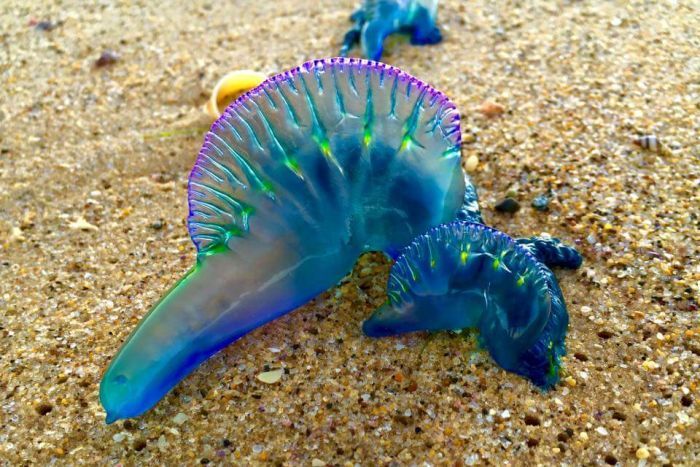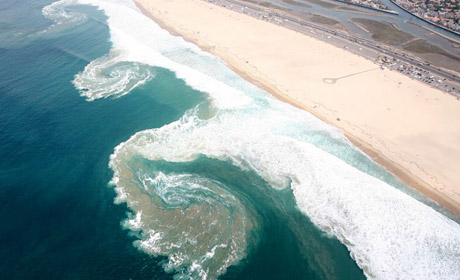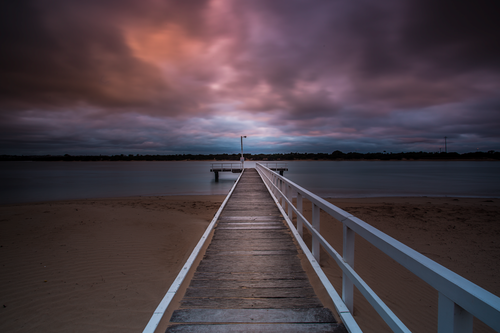
Blue Bottles out on the Bellarine
Friday, 2nd December 2016
Bluebottles have been a common sighting at all beaches on the Bellarine Peninsula.
As reported by Parks Victoria, Bluebottles have a small deep-blue air-filled float that looks like a half blown-up piece of chewing gum (and gets to about the size of an egg). Long, thin retractable tentacles hang below this float and can get up to three metres long. The tentacles are covered in powerful stinging cells.
Parks Victoria and the Department of Environment, Land, Water and Planning are asking people to be aware and avoid being stung by these animals. Look for their presence on the beach, do not touch the animals with bare skin and if present do not enter the water.
Distribution
- Bluebottles are frequently seen along the east coast of Australia during summer months although are not usually as common in southern and western Victoria.
- The sudden appearance of large numbers of Bluebottles are a consequence of prevailing easterly winds and currents over previous days and weeks, pushing these open ocean animals ashore, with some washing up on beaches.
Danger to humans
- Bluebottles can deliver a painful sting when the tentacles make contact with bare skin, even when washed up dead on the beach.
- Intense pain may be felt from a few minutes to many hours and can develop into a dull ache that can spread to surrounding joints.
- Children, asthmatics and people with allergies can be badly affected and many cases of respiratory distress have been reported in Australia.
Prevention
- Avoid swimming when bluebottles have been washed onto the beach as they are likely to still be in the ocean. The tentacles frequently break off in rough water and can still sting.
- Do not touch dead animals as the painful toxin remains active, and nematocysts can still fire long after the animals are dead.
- As a precaution, wear protective clothing such as a lycra top, skivvy, wetsuit or stinger suit.
Treatment
- If stinging occurs, leave the water immediately and wash off any adherent tentacles with salt water.
- If any tentacles are still attached to the skin, gently lift off with tweezers or a gloved hand to minimise more stinging capsules from being fired.
- Do not rub the area with wet sand or towel, or wash with alcohol or vinegar as this will only make it worse.
Sightings can be reported to DELWP on 136 186
Quotes attributable to Dr Mark Norman, Chief Conservation Scientist at Parks Victoria
“These small jellyfish of open ocean more commonly occur along the New South Wales coasts and only occasionally visit Victorian waters when easterly winds and currents combine to carry them across Bass Strait. Because of their small size, blue colour and thin tentacles, they are almost impossible to see in the water so it’s best to avoid swimming where they are seen washed up on beaches.”
Source: Parks Victoria
Source: Parks Victoria


